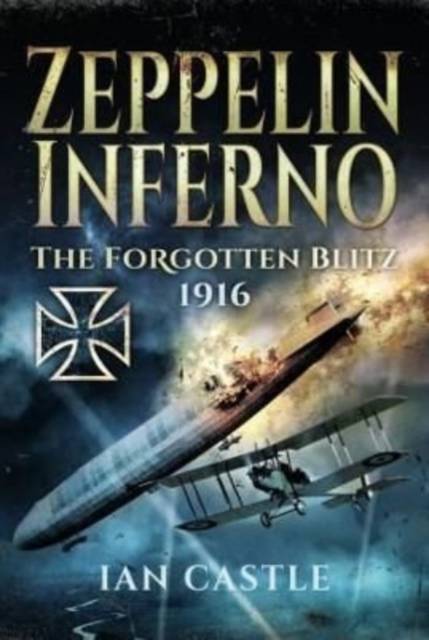
- Retrait gratuit dans votre magasin Club
- 7.000.000 titres dans notre catalogue
- Payer en toute sécurité
- Toujours un magasin près de chez vous
- Retrait gratuit dans votre magasin Club
- 7.000.0000 titres dans notre catalogue
- Payer en toute sécurité
- Toujours un magasin près de chez vous
Description
At the beginning of 1916, as the world entered the second full year of global conflict, the cities, towns and villages of Britain continued to lay vulnerable to aerial bombardment. Throughout that period German Zeppelin airships and seaplanes had come and gone at will, their most testing opposition provided by the British weather as the country's embryonic defenses struggled to come to terms with this first ever assault from the air. Britain's civilians were now standing on the frontline -- the Home Front -- like the soldiers who had marched off to war. But early in 1916 responsibility for Britain's aerial defense passed from the Admiralty to the War Office and, as German air attacks intensified, new ideas and plans made dramatic improvements to Britain's aerial defense capability.
While this new system could give early warning of approaching raiders, there was a lack of effective weaponry with which to engage them when they arrived. Behind the scenes, however, three individuals, each working independently, were striving for a solution. The results of their work were spectacular; it lifted the mood of the nation and dramatically changed the way this campaign was fought over Britain.
The German air campaign against Britain in the First World War was the first sustained strategic aerial bombing campaign in history. Despite this, it has become forgotten against the enormity of the Blitz of the Second World War, although for those caught up in the tragedy of these raids, the impact was every bit as devastating. In Zeppelin Inferno Ian Castle tells the full story of the 1916 raids in unprecedented detail in what is the second book in a trilogy that will reveal the complete story of Britain's 'Forgotten Blitz'.
While this new system could give early warning of approaching raiders, there was a lack of effective weaponry with which to engage them when they arrived. Behind the scenes, however, three individuals, each working independently, were striving for a solution. The results of their work were spectacular; it lifted the mood of the nation and dramatically changed the way this campaign was fought over Britain.
The German air campaign against Britain in the First World War was the first sustained strategic aerial bombing campaign in history. Despite this, it has become forgotten against the enormity of the Blitz of the Second World War, although for those caught up in the tragedy of these raids, the impact was every bit as devastating. In Zeppelin Inferno Ian Castle tells the full story of the 1916 raids in unprecedented detail in what is the second book in a trilogy that will reveal the complete story of Britain's 'Forgotten Blitz'.
Spécifications
Parties prenantes
- Auteur(s) :
- Editeur:
Contenu
- Nombre de pages :
- 400
- Langue:
- Anglais
Caractéristiques
- EAN:
- 9781399093927
- Date de parution :
- 31-05-22
- Format:
- Livre relié
- Format numérique:
- Genaaid
- Dimensions :
- 163 mm x 244 mm
- Poids :
- 816 g

Les avis
Nous publions uniquement les avis qui respectent les conditions requises. Consultez nos conditions pour les avis.






